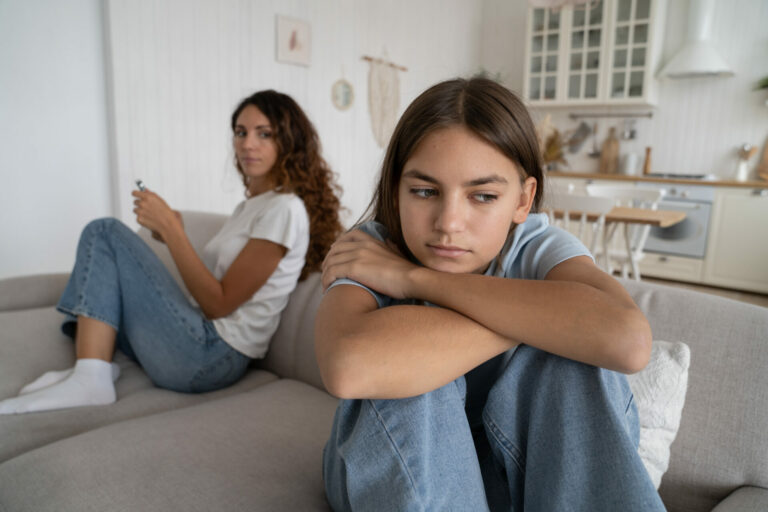Playing "their" games when children are in survival mode
By Alex Biddell, BHT | December 08, 2023
For children who are in “Survival Mode,” building trust is one of the most difficult things for them. Because of the trauma they have experienced, some children have trouble connecting with other children, their teachers, and sometimes their own families. These connections are what help children grow, so they need to have a safe environment to rebuild trust with others. One of the best ways to do this is by joining in with children’s play.
In the last post, children’s playtime was defined as how children learn to interact with the world and people around them. This is the time when they set their own challenges, use their imagination, and work out their emotions, but trauma can affect how a child plays. It shapes how they see the world around them, and it will show in how they play. It may look different from other children’s play, but they have their own unique way to enjoy this time. This is important to remember before joining them in their world of play.
The next thing to remember is that parents should show genuine interest in their child’s play, what they’re doing, and why. Recognizing and appreciating how they choose to play validates them and helps them feel good and safe about their choices. By doing this, parents are celebrating their children’s curiosity alongside them. This kind of validation increases their sense of security and confidence-which leads to skill-building. For children in Survival Mode, security and confidence are two things that they need in order to overcome the effects of trauma.
When parents play with their children, they are not just enjoying time together and making memories, but they are also building a trusted connection again to regain that security. Dr. Bruce Perry said “Our brain is designed to promote relationships. Specific parts of the human brain respond to emotional cues (facial expression, touch, scent) and allows for us to get pleasure from positive interactions.” What this all means is that positive interactions help build positive relationships. The more enjoyable time parents and children spend together, the stronger their bond will be and the more secure children will feel.
An important thing for parents to remember is to follow the child’s lead in how they play. For many parents, their first instinct is to lead and direct their children. It is important to make sure the children are keeping safe, but the most growth and learning happens when children are given the chance to direct. Allowing them to have this can start to build their confidence–reinforcing the idea that the choices they make are important. This is crucial, especially for children who’ve experienced trauma, because there is a good chance their sense of control was taken from them. This kind of play helps them regain control.
When parents and children have fun together, bonds are being built and trust is being established. It also empowers children to experiment freely with the world around them. For children in Survival Mode, trust and control gets stronger and helps to recover what has been lost because of their trauma. And while play may seem like such a small thing on the surface, it is part of the foundation for the greatest healing.
Lecturas recomendadas
For children who are in “Survival Mode,” building trust is one of the most difficult things for them. Because of the trauma they have experienced, some children have trouble connecting with other children, their teachers, and sometimes their own families. These connections are what help children grow, so they need to have a safe environment to rebuild trust with others. One of the best ways to do this is by joining in with children’s play.
In the last post, children’s playtime was defined as how children learn to interact with the world and people around them. This is the time when they set their own challenges, use their imagination, and work out their emotions, but trauma can affect how a child plays. It shapes how they see the world around them, and it will show in how they play. It may look different from other children’s play, but they have their own unique way to enjoy this time. This is important to remember before joining them in their world of play.
The next thing to remember is that parents should show genuine interest in their child’s play, what they’re doing, and why. Recognizing and appreciating how they choose to play validates them and helps them feel good and safe about their choices. By doing this, parents are celebrating their children’s curiosity alongside them. This kind of validation increases their sense of security and confidence-which leads to skill-building. For children in Survival Mode, security and confidence are two things that they need in order to overcome the effects of trauma.
When parents play with their children, they are not just enjoying time together and making memories, but they are also building a trusted connection again to regain that security. Dr. Bruce Perry said “Our brain is designed to promote relationships. Specific parts of the human brain respond to emotional cues (facial expression, touch, scent) and allows for us to get pleasure from positive interactions.” What this all means is that positive interactions help build positive relationships. The more enjoyable time parents and children spend together, the stronger their bond will be and the more secure children will feel.
An important thing for parents to remember is to follow the child’s lead in how they play. For many parents, their first instinct is to lead and direct their children. It is important to make sure the children are keeping safe, but the most growth and learning happens when children are given the chance to direct. Allowing them to have this can start to build their confidence–reinforcing the idea that the choices they make are important. This is crucial, especially for children who’ve experienced trauma, because there is a good chance their sense of control was taken from them. This kind of play helps them regain control.
When parents and children have fun together, bonds are being built and trust is being established. It also empowers children to experiment freely with the world around them. For children in Survival Mode, trust and control gets stronger and helps to recover what has been lost because of their trauma. And while play may seem like such a small thing on the surface, it is part of the foundation for the greatest healing.
References
Perry, B. (2012). The Power of Attachment. Scholastic.Com. https://www.scholastic.com/parents/others/articles/power-attachment.html
Wesselman, D., Schweitzer, C., & Armstrong, S. (2014). Integrative Parenting: Strategies for Raising Children Affected by Attachment Trauma. W.W. Norton, New York.
Wesselman, D., Schweitzer, C., & Armstrong, S. (2014). Integrative Team Treatment for Attachment Trauma in Children: Family Therapy and EMDR. W.W. Norton, New York.
References
Perry, B. (2012). The Power of Attachment. Scholastic.Com. https://www.scholastic.com/parents/others/ articles/power-attachment.html
Wesselman, D., Schweitzer, C., & Armstrong, S. (2014). Integrative Parenting: Strategies for Raising Children Affected by Attachment Trauma. W.W. Norton, New York.
Wesselman, D., Schweitzer, C., & Armstrong, S. (2014). Integrative Team Treatment for Attachment Trauma in Children: Family Therapy and EMDR. W.W. Norton, New York.




